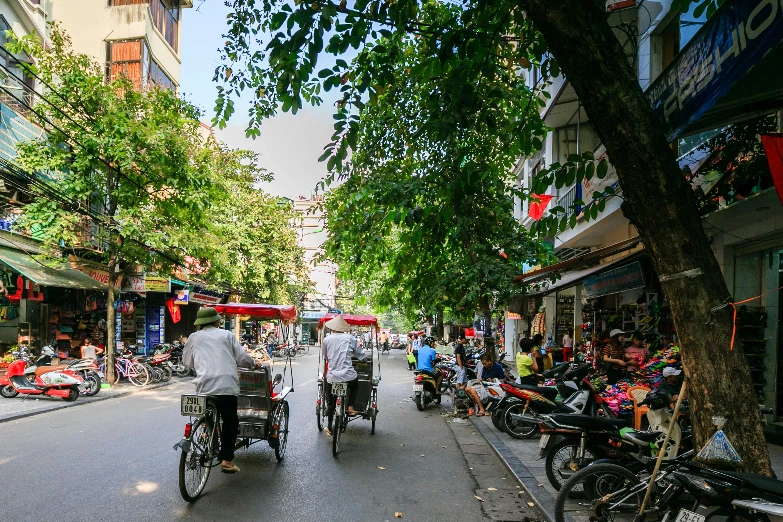Introduction:
Vietnam, a rapidly emerging economy in Southeast Asia, has garnered significant attention from global businesses looking to expand their operations in the region. With its favorable investment climate, skilled workforce, and competitive costs, Vietnam offers ample opportunities for companies to optimize their workforce expenses. However, understanding the intricacies of compensation and benefits in Vietnam is crucial for businesses aiming to attract and retain top talent. In this article, we will explore the nuances of pay and benefits in Vietnam, providing valuable insights to help organizations navigate the local employment landscape effectively.

Minimum Wage and Compensation Trends:
Vietnam has a national minimum wage that is set by the government and adjusted periodically. As of 2021, the minimum wage in Vietnam varies depending on the region, with four different wage regions. The minimum wage ranges from VND 4,420,000 to VND 5,980,000 (approximately $190 to $260 USD) per month.
It’s important to note that the minimum wage serves as a benchmark, and actual wages can vary based on factors such as industry, job role, qualifications, and experience. Salaries in Vietnam are often negotiable, and employers may offer competitive packages to attract and retain skilled employees. Factors like educational background, professional certifications, and specialized skills can significantly influence an individual’s earning potential.
Mandatory Benefits and Allowances:
Employers in Vietnam are required to provide several mandatory benefits to their employees. These include:
- Social Insurance: Employers and employees contribute to the social insurance fund, which provides coverage for retirement, sickness, maternity, and occupational accidents.
- Health Insurance: Employers and employees contribute to the health insurance fund, which offers healthcare coverage to employees and their dependents.
- Unemployment Insurance: Employers and employees contribute to the unemployment insurance fund, which provides financial assistance to employees in case of job loss.
- Paid Leave: Employees are entitled to various types of paid leave, including annual leave, sick leave, and maternity/paternity leave. The number of leave days varies depending on the length of employment.
- Severance Pay: Employees who meet certain criteria are entitled to receive severance pay upon termination of their employment contract.
Additional benefits and allowances, such as transportation allowances, meal allowances, and performance-based bonuses, may be offered by employers to remain competitive in the labor market.
The Role of an Employer of Record:
Navigating the complexities of employment regulations and benefit requirements in Vietnam can be challenging for businesses, particularly those new to the market. An Employer of Record (EOR) can play a critical role in helping companies navigate these complexities.
An EOR is a third-party organization that takes on the legal employer responsibilities for a company’s workforce. By partnering with an EOR, businesses can outsource their HR and payroll functions, ensuring compliance with local labor laws and regulations.
In the context of Vietnam, an EOR can provide the following benefits:
- Compliance and Legal Support: An EOR with expert knowledge of Vietnamese employment laws can help businesses ensure compliance with regulations, reducing the risk of penalties and legal issues.
- Payroll Administration: The EOR can handle payroll processing, including tax calculations, social insurance contributions, and other deductions, ensuring accurate and timely payments to employees.
- Employee Benefits Management: The EOR can manage the administration of mandatory benefits, such as social insurance and health insurance, as well as additional benefits and allowances provided by the employer.
- HR Support: Leveraging the expertise of the EOR, businesses can access local HR support, including assistance with employment contracts, employee relations, and labor disputes.
Conclusion:
Vietnam’s thriving economy, strategic location, and skilled workforce make it an attractive destination for companies looking to expand in Southeast Asia. Understanding the intricacies of compensation and benefits is crucial for attracting and retaining talent in Vietnam. By familiarizing themselves with the minimum wage requirements, mandatory benefits, and the role of an Employer of Record, businesses can navigate the complexities of salary and benefits effectively. This, in turn, can contribute to their long-term success and growth in the dynamic Vietnamese market.
About EOR Asia
EOR Asia is a leading provider of Employer of Record (EOR) services, specializing in helping businesses expand their operations across Asia seamlessly. With a deep understanding of local employment laws, cultural nuances, and business practices, EOR Asia enables companies to hire employees, navigate complex regulatory landscapes, and establish a strong local presence.
At EOR Asia, we pride ourselves on our personalized approach and commitment to helping businesses succeed in a globalized economy. Our mission is to empower companies to enter new markets with confidence, supported by our local expertise and international experience.
For more information on how EOR Asia can support your business expansion in Asia, visit our website at https://www.eor-asia.com/.